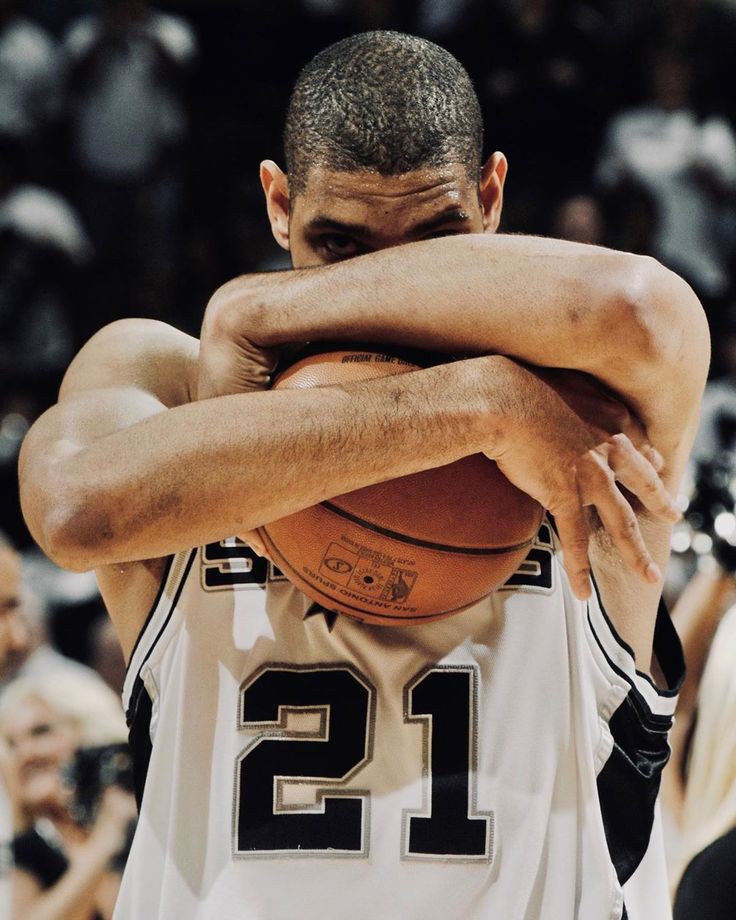In 1997, the San Antonio Spurs drafted 21-year-old Duncan as the overall no.1 NBA draft pick and for the next 19 seasons that he played for the organization, he won five NBA championships, including the Spurs’ first-ever championship in only his second year in the NBA. Even Michael Jordan, arguably the best player to ever touch a basketball, could only get an NBA ring in his seventh year of league dominance.
In Duncan’s 19-year-long career, the Spurs did not miss the NBA playoffs. They also won 70% of their games. Duncan managed to scoop one Rookie of the Year award, two MVP awards, three finals MVP awards, one all-star MVP award, one Olympic bronze medal, fifteen ALL-NBA selections, and fifteen All-defensive Team selections (among others titles) all while averaging 19 points and 10 rebounds per game. Those are monster stats, especially for a player notoriously known to be boring.
The secret: Duncan mastered the fundamentals of basketball. He was extremely disciplined, coachable, and serious about the game. Someone once said that watching Tim Duncan play basketball is very often like watching someone fish: waiting, boredom, and even more waiting – but in the end, Duncan is the man with the fish in his hand.
Tim Duncan quietly dominated the league for years with no controversy, no constant media appearances, no highlight reels, and no fancy plays and antics. To illustrate, Duncan only had 835 dunks in his 19-year NBA career, which accounts for one dunk every other game – not bad, for a six-foot-eleven player!
He remained the star player of the Spurs organization, yet people never really went to a Spurs game because they knew Duncan was going to do something special. He didn’t have the ball-handling abilities of Iverson, the poster dunks of Carter and Kobe, the Larger-than-life character of Jordan, or even an interesting sense of style like most NBA players do. He was that boring, but he still scored 26,000 career points, and won an NBA championship at thirty-seven years young! There’s a reason why Duncan was nicknamed, ‘The Big Fundamental’, and after all was said and done, he retired, quietly, as one of the ten best NBA players of all time.
It’s often easy to get carried away and obsess about the finished product, forgetting the foundation that leads to that finished product. Often, we forget to master the basics – and instead want to ascend to mastery before laying the necessary groundwork to get there. That’s just not possible.
We must strive to become competent before we can be excellent. Lewis Hamilton doesn’t become the best F1 driver of all time (arguably) without knowing how to shift gears, nor can Magnus Carlsen become the best chess player of all time, without knowing how the pieces move. Leonardo DaVinci was known to study human anatomy done to the bone, just to allow him to produce life-like art – the result of that is (amongst countless masterpieces) one of the most priceless paintings available today – the Mona Lisa. But because fundamentals are not sexy, mastering them can quickly become boring, tedious work, but it’s a necessary part of all aspects of our lives.
We must always remember this in everything we do. A shaky foundation will almost always get exposed when the storm comes. You cannot get away with dressing up weak groundwork with fancy curtains. In our work, business, relationships, health, spirituality, etc. we must always ask ourselves, what makes for a good/competent x? What are the foundations of being a great parent/writer/teacher/coder? What is the starting point to becoming a good employee/employer? Once we have built that foundation, once we have become competent, then, and only then, can we become excellent, because, to quote Lord Denning, ‘You cannot put something on nothing and expect it to stand.’
The National Basketball Association is a highlight-producing machine. Night after night, you’re 100% guaranteed that something will give you that “OH MY GOD” reaction – whether it’s a high IQ play, fiery trash talk between two competing stars, or just DJ Khaled bringing a plush cushion for his feet to rest on.
Poster dunks, ankle-breakers, intelligent passes, deep shots, high IQ plays, trash talk – you name it – the NBA has it all. In such a world where highlights are a norm, it’s easy to forget just how important the fundamentals of bouncing a ball are.
And just how important are the fundamentals?
Just as important as a foundation is to a city skyscraper. But we don’t even need to have a Master’s in architecture and construction to understand this. We must look at the five-time NBA champion, Tim Duncan of the San Antonio Spurs.
There’s a reason why the idea of ‘going back to basics’ is so popular. It’s because the basics are the foundations of mastery. We crawl that we may walk that we may run that we may leap that we may fly. But before we can soar like eagles in the sky, we first must learn the fundamentals of moving from point A to B.

